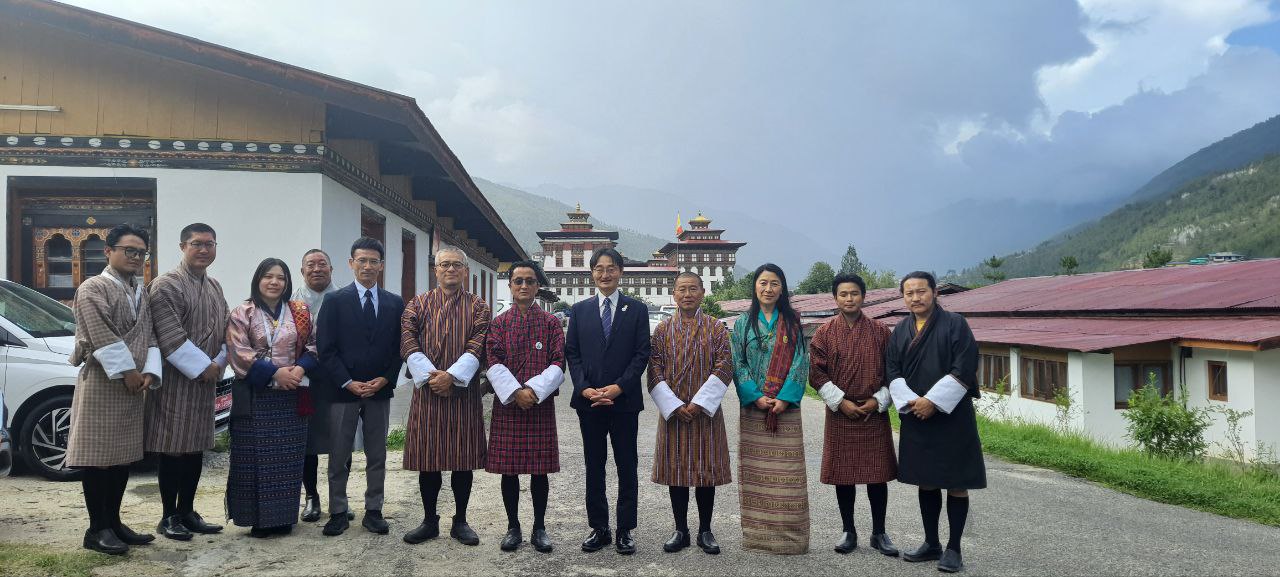An appraisal meeting for the Community-Based Human-Wildlife Conflict Management Project, jointly implemented by the Ministry of Agriculture and Livestock (MoAL), National Plant Protection Centre (NPPC), and the Japan International Cooperation Agency (JICA), was held on July 8, 2025. The event brought together key officials, including Dasho Secretary of MoAL, Director of the Department of Agriculture, the Chief Representative and officials from the JICA Bhutan Office, the Program Director and officials from NPPC, and the Project’s Chief Technical Advisor, Mr. Naoto Yamabata and the Project Coordinator.
This 3.5-year TCP project aims to develop a model for mitigating and managing human-wildlife conflict, focusing on major pests like wild boar, deer, and monkeys in four pilot sites of Punakha, Wangdue, Tsirang, and Dagana. The involvement of a Project Advisor with extensive expertise in addressing monkey-related conflicts in Japan is seen as a significant advantage to this project. While the mitigation strategies currently employed by MoAL have proven effective against most wild animals, challenges persist with monkeys, porcupines, and elephants. This TCP’s major focus will be on wild boar, deer, and particularly on monkeys.
The project is designed to serve as a model that can be further refined and expanded to other gewogs facing similar problems. Its implementation is expected not only to reduce field-level problems but also to help lower the costs associated with the government’s current mitigation measures. Among the key interventions planned for the pilot sites are the modification and piloting of portable electric fences for wild boar and deer, and the development of a universal hybrid fence, which is a combination of electric and chain/mesh wire fencing. This prototype will be designed to particularly address monkey problems in the fields.
During the meeting, the Dasho Secretary of MoAL expressed gratitude to JICA and the Government of Japan for their timely support, emphasizing the urgency of achieving results that can be scaled up nationwide. Given the government’s 13 FYP allocation of approximately Nu. 5 billion for chain-link fencing, successful project outcomes could help reduce this budget while maintaining or improving results and extending coverage to more areas.
The Chief Representative of JICA recognized the government’s position and confirmed their support for starting installations by the end of this year or early next year.

204 total views, 1 views today



